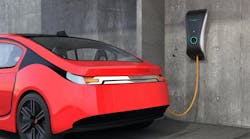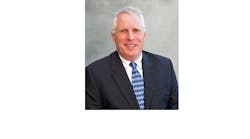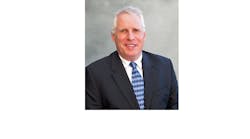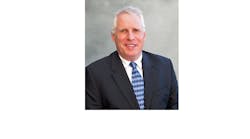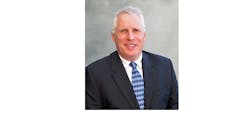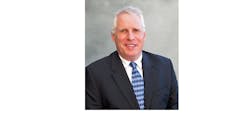The good news is that the U.S. economy is showing some signs of recovery. The bad news is that the recovery may not be as quick or as far-reaching as many of us would like. There's no question that some of the economic data released in recent weeks is much more reassuring than it has been over the past three years.
But you can also read these economic tea leaves a different way and come up with a scenario that's not quite as rosy. The tax cut did pump billions of discretionary consumer income into the economy and drive the third-quarter GDP up a few percentage points. But some economists say any recovery that these cuts sparked may be short-lived if capital spending by businesses doesn't improve. And while the housing market will remain healthy, it's a relatively small piece of the pie for most electrical companies.
The biggest scare on the horizon for most companies in this market is that the most important end user segments — commercial construction of offices, stores and other businesses; and the construction and maintenance of industrial facilities — is a black hole on the construction scene in many markets that will not recover as quickly. Toss in concerns about the Iraq situation and fears on homeland security, and you can see why the outlook is still clouded.
With this scenario at hand, the timing for EW's annual Market Planning Guide and 2004 sales forecasts couldn't be better. We know readers want to know if the recovery is for real, and how or if it will touch the electrical market. Find that out by perusing the 2004 Market Planning Guide, which begins on page 18.
Forecasting the future, whether it be sales of electrical supplies in 2004 or winning picks for the weekly football pool at the office, actually have much in common because what you learn in the process of developing your forecast can sometimes be as important as the end result. In the case of electrical sales, if you have used the data and market-forecasting tools available in Electrical Wholesaling's past Market Planning Guides to develop a carefully researched forecast for future sales, you probably learned things about your customer base, local market and even your own company that you wouldn't have discovered if you hadn't gone through the process.
For instance, perhaps the EW estimate for the number of electrical contractors in a particular Metropolitan Statistical Area (MSA) helped you realize that some additional contractor business is within your grasp, and that you needed to develop a marketing plan to identify these companies and get to know them better.
The same logic holds true whether you are an office worker making football picks, a Harvard-educated economist developing a national forecast, or an electrical distributor in Tuscaloosa, Ala., looking to squeeze a few more sales dollars out of the next county. You do your “due diligence” by gathering and analyzing all available data and then make an educated forecast.
After listening to at least eight economists at two 2004 construction forecast conferences, studying 2004 forecast reports by at least another dozen economists, and analyzing our own survey data, EW's editors learned as much from the process as we did from the economic data. The lesson was in the journey, not just the destination. Baseball legend and part-time philosopher Casey Stengel may have been talking about economics when he said, “If you don't know where you're going, you'll probably end up somewhere else.”
A FEW GOOD LAUGHS
As long as we are talking about economists, I wanted to pass along a few one-liners about practitioners of the dismal science.
-
“We have two classes of forecasters: Those who don't know and those who don't know they don't know.” — John Kenneth Galbraith, economist and ambassador
-
“An economist is an expert who will know tomorrow why the things he predicted yesterday didn't happen today.” — Laurence J. Peter, U.S. educator and writer
-
“Economists are accountants with personalities.” — Unknown
